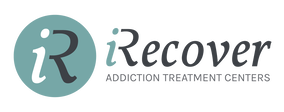How To Help A Spouse Who Is Addicted To Alcohol Or Drugs

If you are in a relationship with a partner that is abusing alcohol or drugs, it can be quite challenging. You may have many feelings and concerns about the situation. You may have unanswered questions like “What do I do?” or “How do I know if they’re using or not”. Yes, it can be an awful feeling in the pit of your stomach. This article is meant to give you some information as you move forward navigating the relationship and your concerns. One thing you should know up front is that the alcoholism or drug addiction is not your problem. You didn’t cause it and you can’t fix it. What you can do right away is begin shifting your focus away from possible reasons as to why they are using or why this is happening to becoming more concerned about your reactions and tendencies to enable, deny, or become codependent in the situation.
Can A Relationship Work Out If Addiction Is Involved?
It is possible for a relationship to work out if addiction is going on, but many factors play a role. Oftentimes, one or both individuals may need some professional help to get back on track.
Whose World Are You Living In?
When your loved one is struggling with addiction, it’s easy to get wrapped up in their world and essentially, stop living in your own world. Instead of focusing on you or practicing your own self-care, you may start obsessing over questions like:
There are plenty of people who will admit to getting in the car and driving around all hours of the night looking for their partner/spouse, frantic and angry. Some would set up cameras in the home, head to the drug dealer’s house snooping around, and more. This type of behavior serves no one, and it can make you feel genuinely crazy.
Don’t Fall Into Codependency
Codependency is a term used sometimes to describe an unhealthy relationship with another person. In the case of a loved one who is struggling with addiction, being codependent would mean that you have a tough time being able to separate yourself from their behavior. You enable and essentially lose yourself in the situation.
Instead of focusing on you, you put a lot of focus into the other person. You lose sleep. You may give them money even when you know they should have their own money. You are constantly looking for clues as to whether they are using or not. You give them just one more chance and then another chance and so on. You feel as if you are going insane. You’re not happy. You’re confused, scared, and feel alone.
The Steps To Your Recovery
Many partners wonder if they should throw in the towel in their relationship. This is not easy to answer because every situation is different. Some should throw in the towel and others may be able to hang in there until their loved gets things together- assuming that they even get cleaned up.
Here are some things you can consider moving forward:
Take some time to learn about addiction, so that you can understand better what is really going on with your partner. This will also help you learn what kinds of enabling behaviors you have been doing and how you can refrain from doing so in the future. Addiction is a disease, and just like if your child was diagnosed with the disease of diabetes, you would educate yourself on how to move forward with changes that would benefit their health. By you learning about addiction, you are more likely to be supportive to your loved one, rather than simple enable and caretake.
You may need some support if you’re contending with a partner struggling with addiction. Consider attending Al-Anon or Nar-Anon 12 Step groups. There you will be able to talk to others who have loved ones that are struggling too. You can get a sponsor/mentor if you wish and work the 12 Steps of the program, which will help you focus on YOU and get out of the addictive environment for a while. Get around others who will help you empower yourself when it comes to setting and keeping boundaries and caring for yourself.
It’s time to gather your inner strength and empower yourself, so you can do what is right FOR YOU. It’s the time to journey toward self-love and connect with yourself in a deeper way. What do you really want in your life? What are your needs and wants? What kind of partnership do you want? Are you willing to do what it takes or walk away if need be? It’s not easy to walk away and it’s not easy to stay, but no matter what you decide, you’ll benefit from growing and harnessing your inner strength.
Boundaries, Boundaries, And More Boundaries
It’s time to learn about boundaries and it’s time to set them – for yourself and for your partner. You don’t have to be a doormat. You don’t have to feel compelled to enable and take care of a grown person, addicted or not. You no longer have to be a willing or unwilling partner to your partner’s disease. When you can come up with some boundaries for yourself and your partner, it is then that you will experience some changes- in yourself. When you say, “No more! I’m not contending with this active addiction anymore!”, you can let go. You can let your partner contend with the disease and their option to get help. You can begin your journey to recovery. If you’re not sure how to set boundaries, perhaps seek professional help so you can learn. It can make a big difference.
We understand you want to help your loved one get free from addiction. There are certainly ways you can support your partner, while taking care of yourself too. Remember that this is a journey. Think progress, not perfection.
Need Addiction Recovery Help?
If your loved one needs addiction treatment, know that professional help is available and helpful. Here at iRecover Treatment Centers, we’re here around the clock to assist those in need any way we can. Addiction treatment in Canada can be just what your loved one needs to get free and begin creating the kind of life they truly desire.
